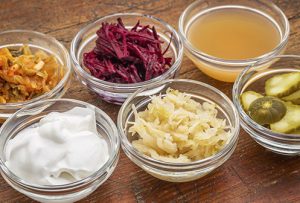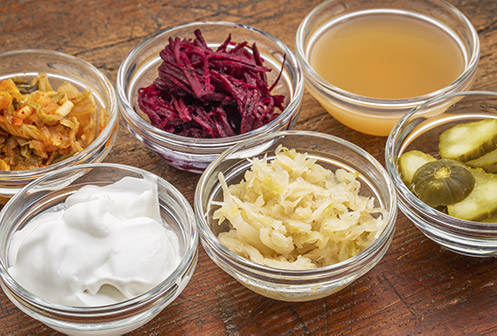Disclaimer: This blog is written based on our study that has not been accepted by the mainstream yet. We do not intend to replace the advice and consultation with a medical doctor. We invite you to examine the study and discuss it with your doctor before doing anything with it. The company claims no financial interest for the potential benefit of the information and assumes no responsibility for any adverse results due to improper use of the data.
What Are Probiotics?
The standard definition of probiotics, according to the International Scientific Association for Prebiotics and Probiotics(ISAPP), is: “live microorganisms that, when administered in adequate amounts, confer a health benefit on the host.” The definition I commonly use is: “Probiotics are live microbes that beneficially interact with a host under normal/healthy conditions.” Compared to the description from ISAPP, my definition emphasizes that probiotics are part of our healthy body and do not have to come from outside to confer a health benefit.
Why do we need probiotics?
The fundamental reason is that we live in a world of bacteria, and we need good bacteria to fight off the harmful bacteria. Bacteria can live everywhere on the planet between the south and north poles, from the bottom of the ocean to the tip of the mountain. If there is livable space, bacteria will be there. The interfaces between humans and the external world, such as the digestive tract, respiratory tract, and skin, are the perfect location for bacteria to live. The question is, do you want helpful bacteria or harmful bacteria to be there? Hold your answer. The solution from evolution is probably quite similar to yours, the probiotics (helpful bacteria).
Where are probiotics?
As alluded to above, they live in the digestive tract, respiratory tract, reproductive tract, and on the skin. Different species occupy these different niches.
What do probiotics do?
- Modulate the immune system
This interaction is critical between the host and the microbes living with us. It is essential not only to the bacteria but also to the human host. Failure in this interaction will result in problems such as allergies, autoimmune diseases, and infections.
Our immune system exists to protect us by killing anything that is not us. Microbes are not us. Probiotics need to peacefully communicate with the immune system so that it allows them to thrive. The peace agreement between our immune system and probiotics also benefits the host by preventing the unnecessary war against microbes and other things, such as pollen, that do not hurt us. This agreement is temporarily and spatially limited, so the immune system can protect us in a timely fashion when it should fight something like an infection.
Please read my study if you want to know more about the theory behind this: https://allerpops.com/oral-probiotic-deficiency-may-cause-common-allergies/.
- Provide extra energy
In the gut, probiotics degrade organic fibers that humans cannot digest. Part of the energy released by probiotics can be taken and used by humans.
- Provide nutrients
For example, some probiotics can synthesize vitamin B12 in the gut that is essential to our health.
- Degrade toxic substances
For example, some probiotics break down bile acid and eat cholesterol.
- Occupy space to inhibit pathogens from growing.
How can I take care of my probiotics?
Microbiota that includes probiotics is usually quite robust and does not need special care traditionally. Since we use a lot of untraditional substances in modern life, you may pay attention to the following suggestions:
- Antibiotic usage: Take it only as necessary.
- Consume enough dietary fiber from grains, veggies, fruits, and fungi.
- Sufficient, but not excessive personal hygiene that includes oral and skin cleaning, preferably with agents free of antibacterial chemicals. For example, for me, adequate sanitation includes brushing my teeth with water only once a day, flossing once a week, and showering 2-3 times a week.
- Please refer to this link to read about helping infants get their probiotics.
When should I take probiotic supplements?
In general, a healthy person does not need to take any probiotic supplements except for typical probiotic food, such as yogurt, kefir, and other fermented food. Probiotic supplements may help you during the following situations:
- Long term antibiotic treatment, antibiotics can suppress probiotics.
- The recovery from a lasting illness.
- Giving birth to a child.
What probiotics should I take?
The purpose of taking probiotics is usually to restore a diverse microbiota that will support your health. Constrained by FDA regulation, current probiotic supplements are mostly made with a limited number of strains of bacteria and are not sufficient to restore the diversity. Therefore, I suggest you take multiple different brands alternatively. In many situations, a combination of different probiotic food can also be beneficial. Most probiotics are for the gut. There are no probiotic supplements for the respiratory system. The only product that can support airway probiotics is AllerPops.


